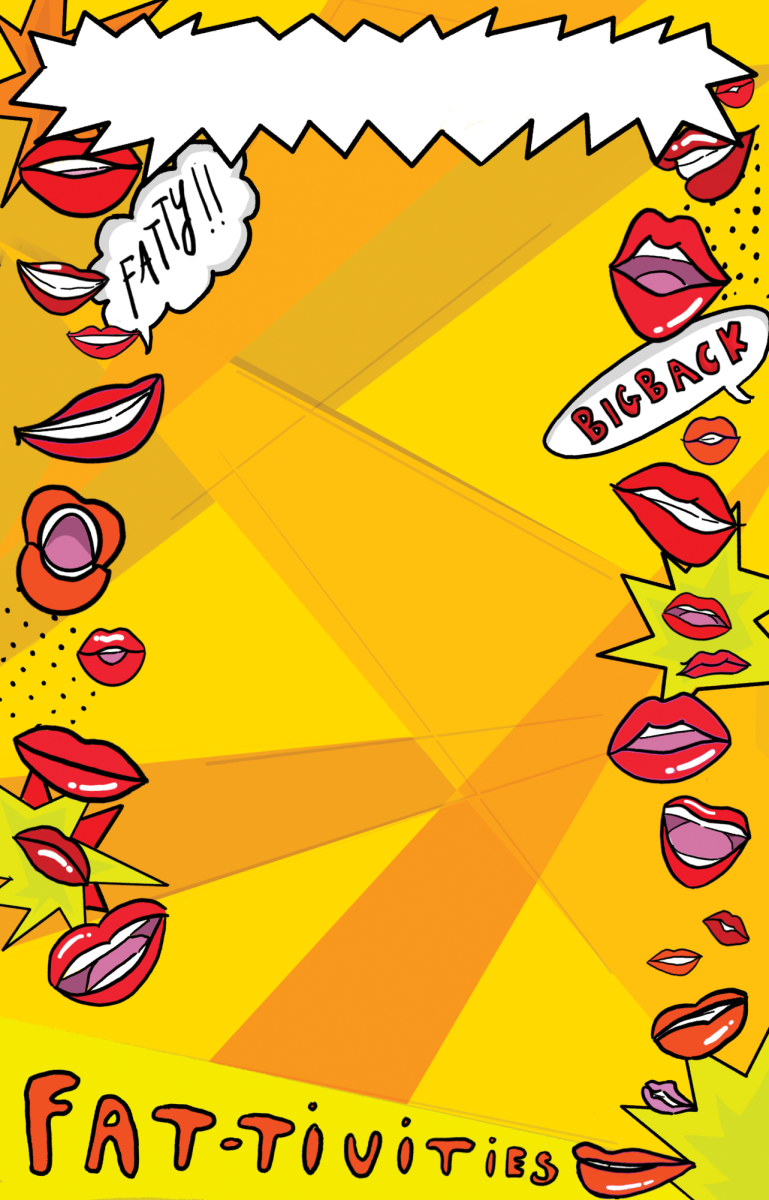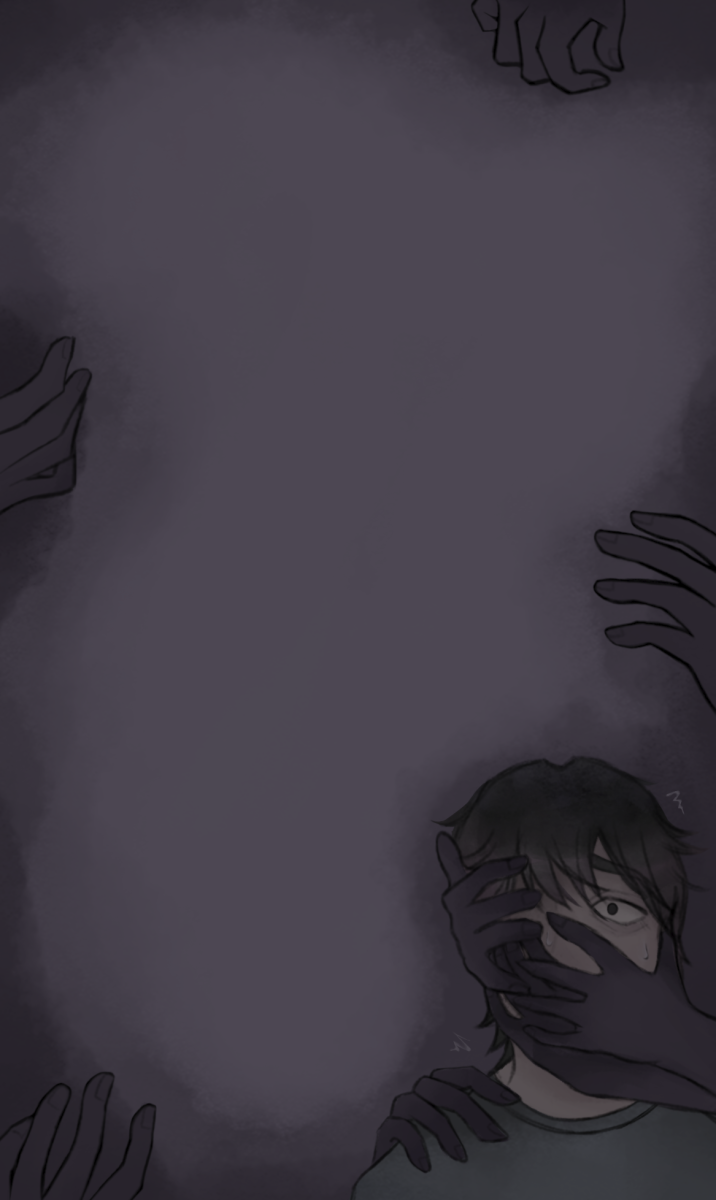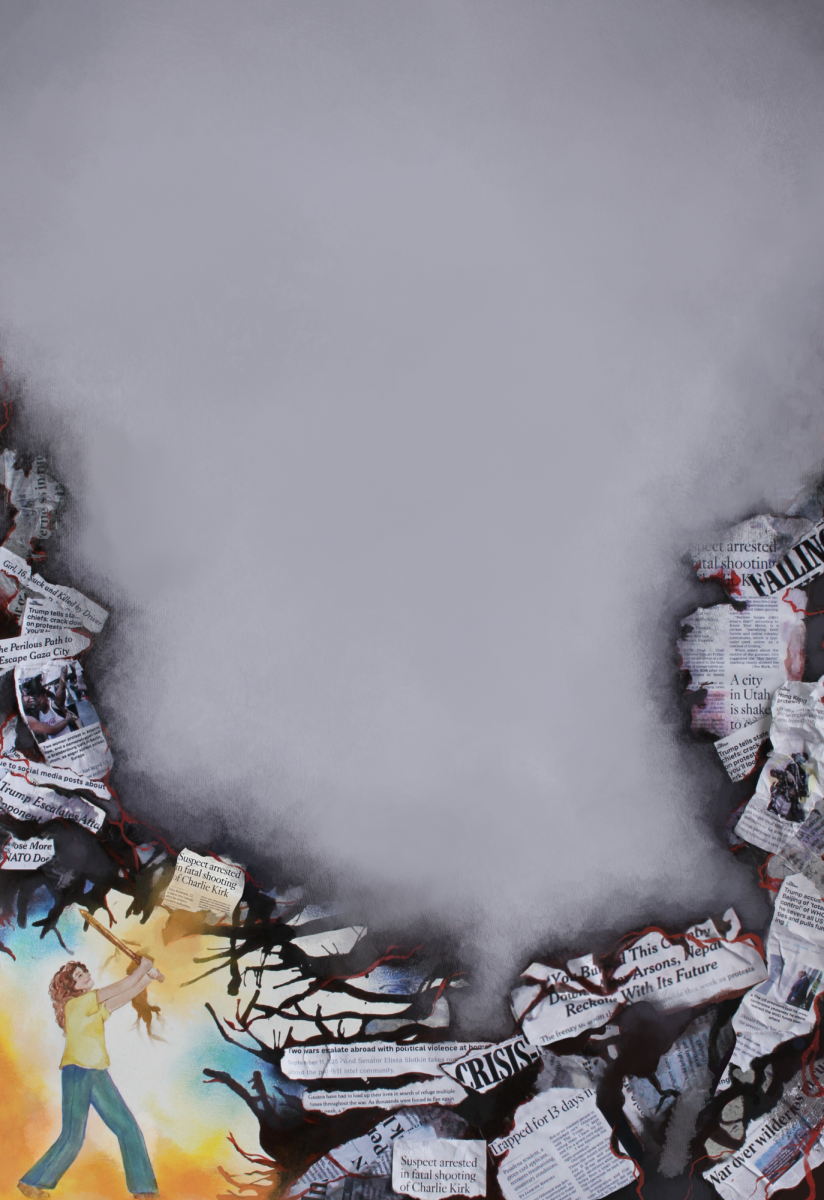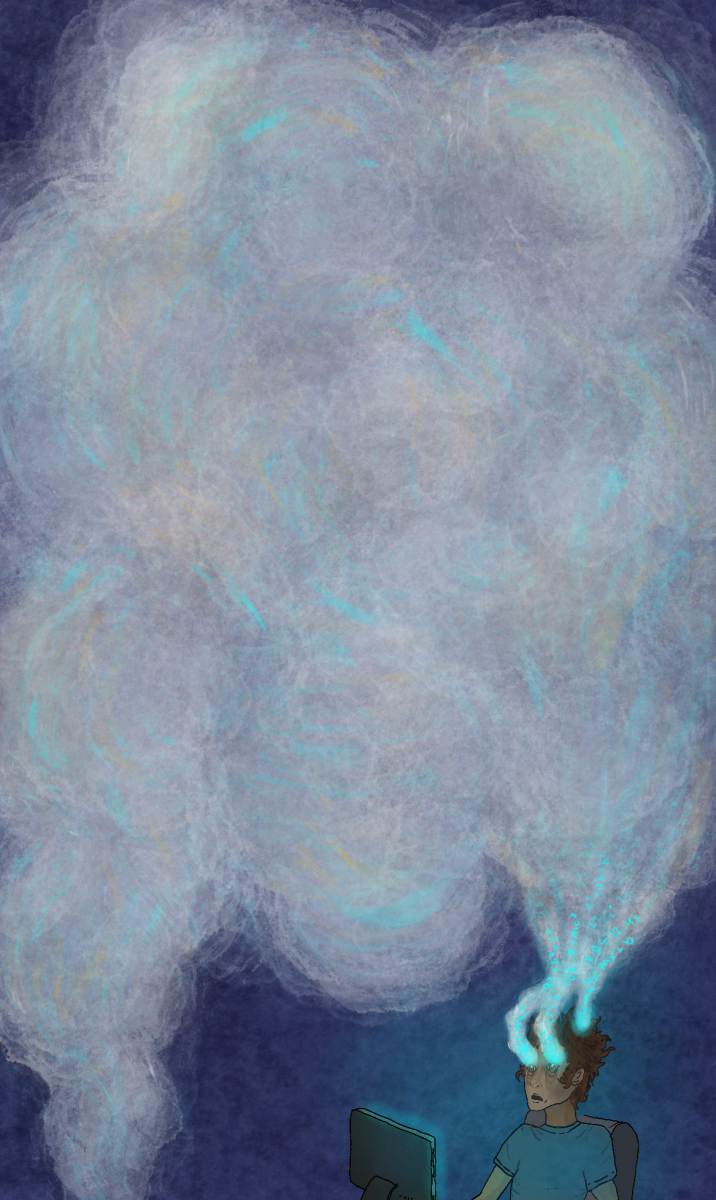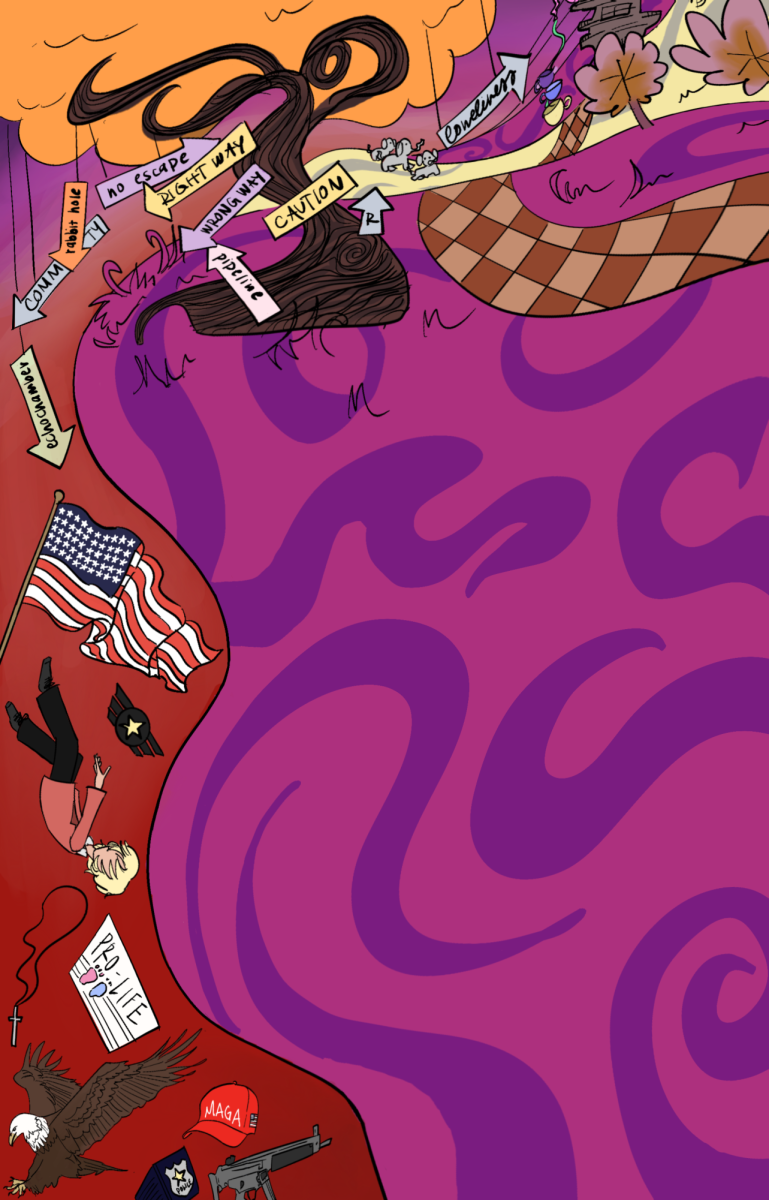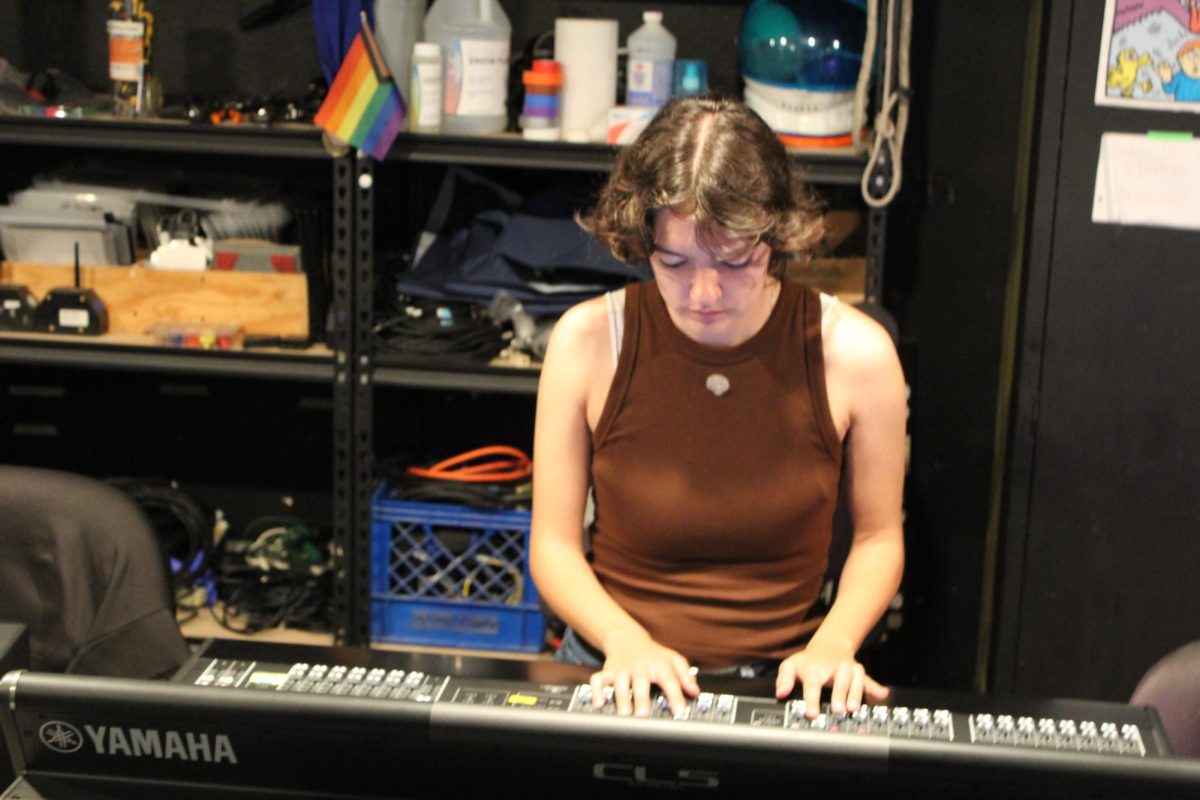Fatty.
Big back.
Fat-tivities.
These joking slang terms were thrown around Sophia Wang’s table at a hotpot dinner with her friends. Sitting in the middle, Wang felt incredibly uncomfortable, the language making her extremely conscious of herself and how her friends might view her.
“I have these really sweet friends, the prettiest people I know, and after we were done eating, when we’re checking out they said, ‘oh my god, I literally look pregnant, like, my stomach, look at me!’” Wang said. “Those kinds of words definitely hurt if you see your super skinny, pretty friend [say that] then you look at yourself and you go, ‘I don’t feel good about myself.’”
Common slang terms like these often make people giggle, or at least slightly smile. It makes sense: nowadays, they’re almost always meant to be funny, despite their underlying negative connotations. Wang has noticed these words becoming increasingly popular with, and hilarious to, many of her peers. She said that a culture of joking about weight, regardless of people’s own insecurities, has risen.
“If I see any [social media] post about food, it has the word fat-tivities in it, or big back,” Wang said. “ It’s not just one person, it’s a collective.”
Ruby Ryan (12) said that she finds it ironic, as the rising #BodyPositive movement — a long-standing popular hashtag and attitude that aims to accept all body types regardless of weight or size — coincides with an increased use of joking about fatness. Forbes magazine said that “body positivity has never been more mainstream,” yet, according to a paper published by the University of Illinois Chicago, weight stigma has increased 66% in the past decade.
“It’s so funny, and it’s so not funny,” Ryan said. “As a society we say ‘love your bodies’ then we turn around and call each other bigbacks.”
Ella Rook, author of the peer-reviewed scientific paper, “How Language Shapes Anti-Fat Bias: Comparing the Effects of Disease and Fat-Rights Framing” said she worries about the culture surrounding fatphobia, and that it’s not being addressed.
“When you compare [fatphobia] to other forms of bias, those other forms of bias have either stayed fairly similar or decreased,” Rook said. “So it’s great that overall we’re becoming less stigmatizing as a society, but fatphobia kind of feels like it’s the one that’s left behind, and it’s still not taken as seriously as a form of bias compared to racism or sexuality or disability.”
Ryan has noticed this language being used frequently in-person.
“For so long [talking about weight] was very [taboo],” Ryan said. “Now, people are outwardly body positive and then think, ‘I’ll just say [these words] because it’s a joke. ’”
Dr. Gaby Bagnara, a psychologist who works at the UC San Diego Health’s Eating Disorders Center for Treatment and Research said that deflection and projection of insecurities onto others can also be factors in why people choose to use this slang.
“People aren’t intending to be harmful [yet] they are so unaware of how damaging that language can be,” Dr. Bagnara said. “It’s just the first thing that pops into people’s minds.”
Wang agreed that these words generally don’t have a malicious intent; rather, they’ve just become part of the common vernacular.
“I have some friends that might be a similar weight to me and they will still joke about it or say these [words] in a self-deprecating way,” Wang said. “They don’t really think about it because it’s just normal slang now that people say without even thinking. I don’t think they’re doing it with any malicious intent.”
Ryan said that the comparison of her body to people she’s heard using the weight-focused slang has harmed her mental health.
“It’s hard to be around and it’s hard to have people say, ‘I’m fat,’ ‘I’m ugly’ and then you look at yourself and go: So does that mean I’m fat? Does that mean I’m ugly?” Ryan said. “I’ll hear people say stuff and sometimes internalize it.”
Jaclyn Lee, a licensed therapist who works with people who have eating disorders and struggle with body image, said that comparison is an inherent part of human nature.
“I think that’s such a normal thing, looking at someone sitting next to you, hearing them say things to you then thinking about how you’re equal, less or more than them,” Lee said. “We’re often trying, especially in high school, to figure out how we can belong and so we’re constantly comparing to see whether or not we’re ‘good’ or ‘bad.’”
False comparison is rife on social media, which is where most of these slang terms and general lingo about bodies have gained popularity.
The history of the words themselves, however, are difficult to trace, due to the lack of research on the newly popularized vocabulary. According to Fortune Magazine, much of this slang has roots in African American Vernacular English (AAVE). It was taken from specific Black creators, who used it in a reclamatory way, and pushed into the mainstream. There, meanings and intentions shifted.
Dr. Stephen Flusberg, Assistant Professor and Director of Frame Lab at Vassar College, said that when words get taken up by the majority, their meaning often changes.
“One of the things that happens with slang is that people will invent a new word to describe something that people have negative words against as a way to eliminate or cancel out that emotional feeling,” Dr. Flusberg said. “However, over time, because that group [that created the word] is still stigmatized, that new word will gain that negative emotion.”
According to Dr. Flusberg, these negative emotions and connections persist, regardless of intention.
The term “bigback,” for example, began gaining traction on social media when influencers started posting videos of very large meals, often captioned with the words “I’m such a bigback.” As time went on, more and more of the food shown in the videos became normally portioned. Wang noticed that instead of being a way to poke fun at one’s own outrageous appetite, the trend became a way people villainized food, directly contradicting the message of body positivity.
Like most social media trends, it evolved, now containing creators shoving pillows under their shirts for comedic effect, and saying things like “fat-tivities’ over posts about simply going out to eat.
“Honestly, it’s really confusing to me because you’ll see people being so body positive, hyping each other up, and then turn around and call a normal-sized portion of food ‘fat-tivities’ or some other degrading phrase,” Wang said.
Dr. Flusberg said that constantly being surrounded by negative language about the body can harm mental health, no matter how seemingly innocent its usage is.
“Repeatedly being exposed to too much stress, especially the kind of stress that’s isolating, that’s separating you from other people in a community, is not great in terms of long-term health,” Dr. Flusberg said.
Ryan said that she’s witnessed a lot of weight-focused language on her dance team — something she said was likely due to the huge emphasis the sport puts on body types.
“Dance is such an abusive sport for your mental health because you’re staring in a mirror all day,” Ryan said. “But, it’s interesting to see how my friends view their body versus how I see them because everyone on my dance team is super skinny, everyone’s super fit because we dance literally every day of the week. But then I hear how they think of themselves and I’m, like, that’s so not true. I think it’s because we’ve been told from the beginning, that you have to be this skinny, perfect person. You have to have a thigh gap, you can’t have rolls on your stomach, all of that stuff.”
Ryan said that the language and attitudes of those around her has harmed her perception of herself.
Some of Wang’s friendships grew strained because of the language used, causing her to feel isolated.
“It always just makes me sad,” Wang said. “When I see my friends saying this stuff, it’s almost insensitive, so I feel like it affects our friendships and strains them.”
Wang developed an eating disorder due in part to the language she was surrounded with.
“I often felt like I was the only one uncomfortable with such comments and often also the biggest in the room,” Wang said. “It just added to the feeling of feeling disgusting just for existing.” Dr. Bagnara said that isolation can worsen body image issues and eating disorder symptoms.
“I think there’s so much perceived isolation,” Dr. Bagnara said. “And if your eating disorder is telling you like, yeah, you’re alone, that furthers the connection I think to the illness.”
Wang said that constantly being surrounded by this negative language cemented those comments in her mind.
“It worms its way into your brain and makes you really insecure,” Wang said. “[Hearing that language] really does inhibit the recovery process, like you finally start feeling better about yourself and then you hear people close to you talk like that and it hurts. Even if it wasn’t directed at you specifically, when you’re in that headspace and mindset you still take those words and apply them to yourself.”
Wang said that there were two things that helped reframe her relationship with food: the outreach of a specific group of friends and positively curating her social media feed.
“Talking to my friends helped a lot,” Wang said. “[With] friends that had similar problems to me, we literally talked about this exact thing, of other people talking down on themselves and saying, ‘I’m so fat.’”
Wang said that she could face fatphobic terms better when in the company of her friends.
“I’ve become more confident, so I just kind of ignore it now, because I’ve never found a way to actually go up to people and say, ‘Hey, don’t use that language,’” Wang said.
Wang said she knows that people don’t mean to be hurtful when they say these words, but it still harms everyone involved.
“Everyone is [so] self-deprecating, and it doesn’t only [hurt] the people around, but also the people who are saying it,” Wang said. “I mean, a lot of people that use the slang also struggle with their self-image. It’s really sad to see.”
Wang and Ryan said they have found ways to combat the rampant negativity that surrounds body fat. They said that by cultivating their social media feeds, the avenue ironically by which much fatphobia and fatphobic slang is spread, helped them create a better mindset.
Ryan came across the concept of body neutrality there, an emerging popular perspective that separates the idea of weight and worth in addition to acknowledging that being self-conscious is a common and totally acceptable experience.
“[Body neutrality] talked about how having that unrealistic expectation of always being okay with your body can cause some mental health issues,” Ryan said. “It just really influenced my thinking about [body image] because I don’t think I’ve ever been told it’s okay to not be okay, about body image and mental health.”
Rook said that words, and how we use them are very influential, and that even though something is thought of as inconsequential, it can communicate a whole host of opinions and biases that can then be taken in by the listener.
“People might think, oh, this is just a really harmless, silly little phrase,” Rook said. “But there’ll be a lot of people who see that and very innately understand that ‘bigbacked’ is referring to a fat person. And that when we’re using that language we understand that we’re seeing that as a bad thing. So people are recognizing that there are lots of implications [in] the language that we use because we don’t use language in isolation. And we don’t use it without context.”
Ryan said that the power of language is often underestimated and that people don’t fully understand how damaging seemingly harmless words and terms can be.
“You know that ‘sticks and stones may break my bones but words will never hurt me’ saying?” Ryan said. “I think that’s such a lie.”


